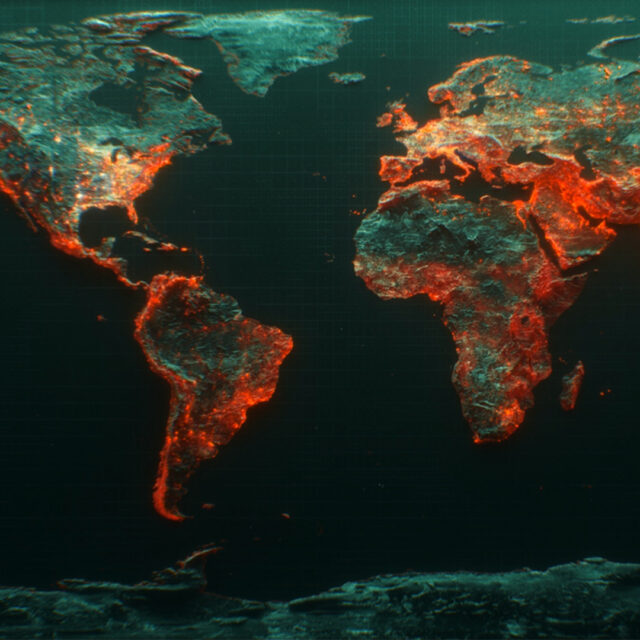By Jennifer Oldfield, Global Partnership for Sustainable Development Data
What data is and how data could and should be used to change the world is a debate that’s been going since the beginning of data collection.
In its simplest form, data is numbers. These numbers then get collected and analysed (for trends, patterns, anomalies, outliers etc.) and turned into information. It’s this information which then informs us how best to proceed.
When people within the international development talk about the “data revolution”, and get excited by its potential to change the world, it can sometimes feel slightly beyond reach.
Here, we’ve decided to explore 8 real life examples of why #datamatters, and how it is being used across Africa to change lives:
1. NASA is helping Kenya build a secure future for farmers and the younger generation.

Working with Kenya’s Ministry of Agriculture, the National Aeronautics and Space Administration (NASA) will provide real-time information on crop types, agricultural insurance, and weather. The Kenya government is leading this effort to boost the productivity of small farmers.
2. Rebuilding post-conflict countries using data.
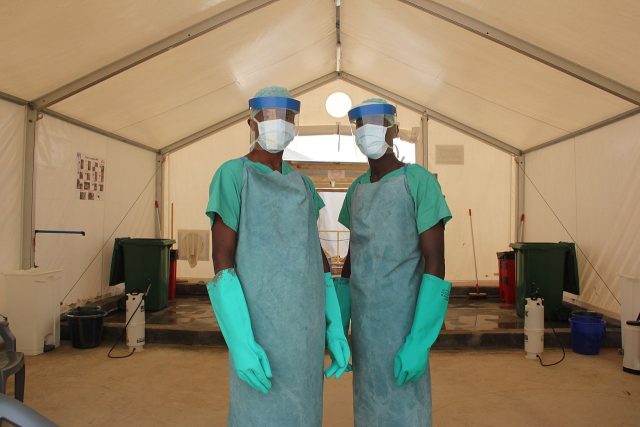
Student sprayers keeping medics safe from Ebola in Makeni, Sierra Leone. (Photo credit: Wikimedia Commons)
Sierra Leone has weathered the Ebola crises and the collapse of its main mining industry (iron ore), but has doubled down on efforts to develop and implement data-led national development plans to achieve the Sustainable Development Goals. Projects include an initiative to open up fiscal and economic data. Despite after-effects of conflict, data can help these nations accelerate recovery and contribute to Africa’s collective future.
3. Securing farmers’ futures while building food resilience and security.

(Photo credit: Wikimedia Commons)
Good data can secure a farmer’s future. In collaboration with NASA and the Initiative Prospective Agricole et Rurale (IPAR) the Government of Senegal will learn about farming trends through producer’s associations and then feed back information to them on changing seasons, weather and optimal crops to strengthen food security.
4. ID cards can help improve access to education and health care to millions.
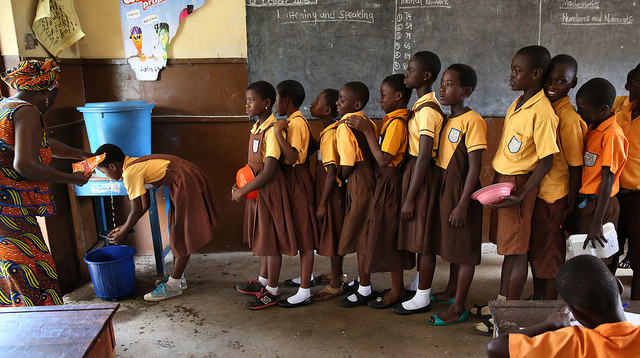
The ID card system will help the government plan for and enrol more children in school at age 6. (Photo credit: World Bank).
Ghana will introduce a national ID card to address the country’s problem with unregistered births. Using ID cards to gather data will improve health services throughout a child’s early years, and will significantly improve a child’s chances in adult life. Better lives start with better childhoods.
5. Registering new births to provide access to healthcare.
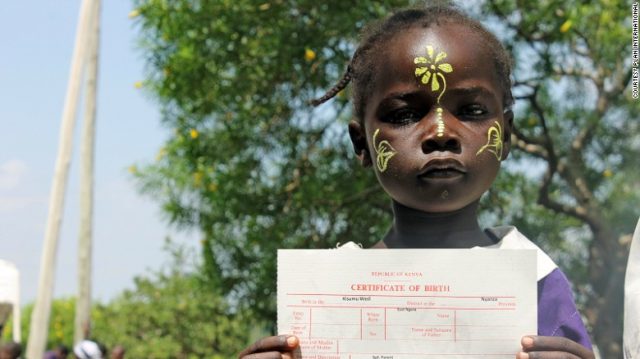
Globally, an estimated 230 million children under five are not registered. (Photo credit: Plan International).
It is estimated that millions of births are unregistered, severely limiting life chances. Kenya is partnering with private sector partners such as Unilever, Royal Philips, and Safaricom to improve data collection and connectivity in rural counties. Together they will improve primary health care, and share their learnings with African nations to better the lives of Africa’s young.
6. African nations are building sophisticated data systems to improve public policy.
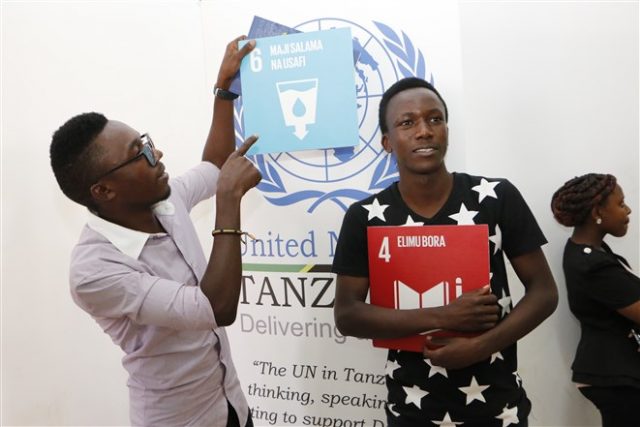
Taking the Global Goals to Dodoma. (Photo credit: UN).
In Tanzania, the government is using international standards established at global forums such as the PARIS21 consortium, to improve availability, quality, and accessibility of data to the country. This collaborative effort will apply global and regional indicators helping national policy to address the most serious challenges, including population growth and climate change.
7. Setting up data labs to provide home-grown talent.

Data science can be used for development and humanitarian action. (Photo credit: UN Global Pulse).
There is a worldwide shortage of data scientists while data-wrangling capacity is in short supply. A network of data labs is emerging where global institutions, national experts, and researchers are collaborating to support African countries. Kenya’s Strathmore University, the University of Rwanda, UNECA plus the UK’s Office of National Statistics and Department for International Development (DFID) are working together to improve the quality, strengthen leadership and share the benefits of data led development.
8. Using telco data to track internal migration.
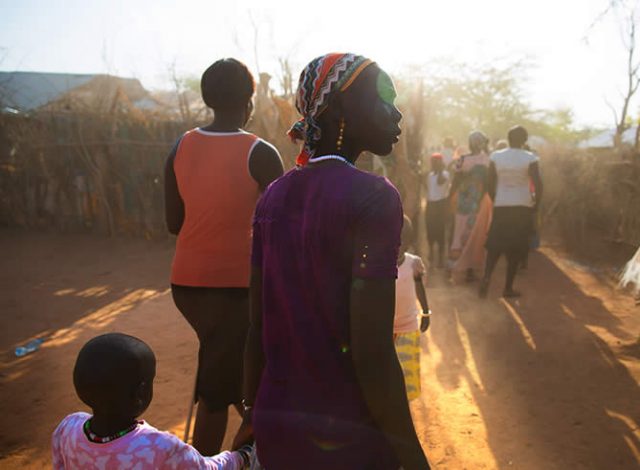
Anonymised data from users mobiles’ pinging local towers can be used to see how people flow through a country. Ghana is exploring use of this technique to map and plan for internal economic migration and access to social services.
The hard work starts NOW.
With political commitments secured across Africa, the UN Foundation’s “Global Partnership for Sustainable Development Data,” which co-ordinates initiatives for African progress, is gathering in Nairobi to host “Data for Development in Africa” on June 29 and 30. Key partners from national governments to the private sector will present their first steps to achieving tangible date-led development projects. The Partnership’s Executive Director, Dr. Claire Melamed, believes “African countries are leading by example, mainstreaming innovations that will benefit millions of people across the continent.”

